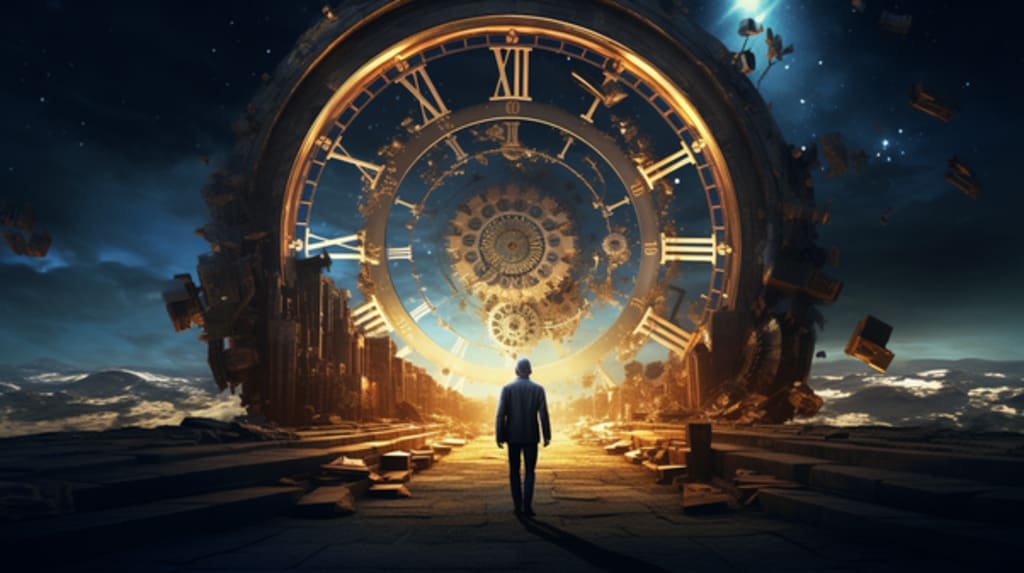
In March 2003, Andrew Carlssin, a 44-year-old man, made headlines when he turned an $800 investment into a staggering $350 million in just two weeks. This unprecedented financial success raised eyebrows at the FBI, who suspected insider trading or a financial scam. When questioned, Carlssin stunned investigators with an extraordinary claim – he was a time traveler from 250 years in the future who had foreknowledge of the stock market's performance.
This incredible story led to intense scrutiny by the FBI. They discovered that there were no records of Carlssin before December 2002, which added to the mystery. On April 3rd, Carlssin was due to appear in court for his bail hearing, but he mysteriously disappeared, never to be found again. This tale of apparent time travel begged the question: Is time travel really possible, or is it just the stuff of fiction?
The concept of time travel has fascinated people for over a century, especially since H.G. Wells' groundbreaking novel, "The Time Machine," which popularized the idea of a machine that could transport people into the past or future. While much of time travel in literature and film is fictional, it has also inspired serious research papers and scientific speculation.
To understand the scientific basis for time travel, we must first examine the concept of traveling to the future. The foundation for this concept comes from Albert Einstein's Theory of Special Relativity. Einstein introduced the idea of time dilation, which challenged the prevailing belief that time is a constant. He suggested that time can slow down or speed up based on an object's speed and the strength of the gravitational field it experiences.
Time dilation can occur in two ways. First, as objects move faster, time appears to slow down for them compared to stationary observers. This is known as Kinematic Time Dilation, and it has been experimentally confirmed. For instance, if someone travels in a fast spacecraft, their clock will run slightly slower than a stationary clock on Earth.
The second way to achieve time dilation is through gravity. In areas with stronger gravitational forces, time slows down. This was depicted in the movie "Interstellar," where the proximity to a massive black hole caused significant time dilation. This is theoretically possible, although the practical challenges and dangers of getting too close to massive gravitational objects, like black holes, make it improbable for humans at this time.
In addition to these methods, there's another concept for future time travel – cryosleep. While currently the stuff of science fiction, NASA is researching stasis chambers that could induce a state of hypothermia in astronauts to slow down the aging process during long space journeys.
While these methods allow for traveling into the future, going back in time presents far more complex challenges. Theoretical physics suggests that wormholes, generated by an extremely powerful gravitational field, could potentially create pathways for time travel to the past. Nobel Prize-winning physicist Kip Thorne has explored this idea, but the practicalities of opening and maintaining a stable wormhole remain theoretical and face enormous challenges.
Time travel into the past also encounters significant paradoxes, like the Grandfather Paradox and the Predestination Paradox. These paradoxes raise fundamental questions about the consistency of a timeline when events are altered. Theoretical solutions, such as the multiverse theory or fixed timelines, have been proposed, but they are still debated within the scientific community.
In the end, while time travel to the future is theoretically possible and can be seen in practical applications like GPS satellites, traveling to the past remains a complex, paradox-riddled challenge. While Andrew Carlssin's story remains a mystery, the scientific quest for time travel continues, guided by the pioneering work of great minds like Albert Einstein and Kip Thorne. Time travel remains a captivating concept, blurring the lines between science and fiction, and inspiring generations to explore its possibilities.
About the Creator
Kamran Malik
Interesting Articles and Entertainment for You..






Comments (1)
extraordinary